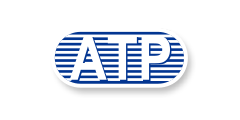DDR4-3200 DRAM Solutions Deliver Memory Boost to AMD EPYC™ and 2nd Gen Intel® Xeon® Scal | ATP

Taipei, Taiwan (March 2020) – ATP Electronics, the leading manufacturer of "Industrial Only" high-performance cost-effective DRAM modules, announces the release of fast, Low-Power DDR4-3200 solutions to take full advantage of the latest AMD EPYC™ Family and 2nd Generation Intel® Xeon® Scalable Processors (formerly codenamed Rome and Cascade Lake, respectively). The latest DDR4-3200 solutions are ready for future AMD Milan and Genoa as well as Intel® Cooper Lake and Ice Lake processors.
ATP's DDR4-3200 modules ensure a big boost in performance, compute density and productivity with their fast 3200 MT/s data rate to optimize the power of AMD's eight-memory channel and Intel's six-memory channel architectures. With their capability to operate at the same speed even at full load and the increased interface speed from 2666/MTs to 3200 MT/s, ATP DDR4-3200 DRAM modules amplify theoretical peak performance by up to 20%. They transfer data about 70% faster than DDR3-1866, one of the fastest DDR3 versions available.
"High-speed data processing, real-time analytics and data-driven decision making are just among the many hallmarks of a transforming industrial world. ATP's fastest DDR4 modules with 3200 MT/s data rate are pushing computing power to new heights to meet today's increasing and changing demands," said Marco Mezger, ATP Vice President of Global Marketing. "These memory modules reduce total cost of ownership (TCO) by delivering not only new levels of performance, but also robustness, reliability and endurance that all ATP products known for."
Due to their speedy responsiveness, the latest ATP DDR4-3200 solutions are ideal for high-performance computing (HPC) applications requiring high density, low power, great scalability and efficiency, such as telecommunication infrastructures, networking storage systems, network-attached storage (NAS) servers, micro/cloud servers, and embedded systems like industrial PCs.
Enterprise-level densities up to 128 GB and peak transfer rates up to 25,600 MB/s dramatically increase the capabilities of growing embedded and cloud computing environments to meet large-scale, memory-intensive and diverse (I)IoT/AI workloads.
Engineered for rigid industrial requirements, ATP DDR4-3200 DRAM modules deliver industrial-grade performance with wide-temperature ICs supporting -40°C to 85°C operating range. ATP implements module-level test during burn-in (TDBI) to expose weak modules and detect and screen out even 0.01% error, thus ensuring utmost module reliability and long-term endurance.
ATP's DDR4-3200 modules' 1.2V low-power design allows operation at higher speeds without higher power and cooling requirements. This translates to lower consumption and substantially higher savings. By implementing the fastest and low-power IC design, ATP DDR4-3200 modules enable cost-effective scalability and expansion of memory footprints to keep pace with future requirements.
ATP unbuffered DDR4-3200 modules are available in the following configurations: SO-DIMM, UDIMM, ECC UDIMM, ECC SO-DIMM and RDIMM.
- +1 Like
- Add to Favorites
Recommend
- ATP‘s Fastest “Industrial Only” DDR4-3200 DRAM Modules with the Transfer speed of up to 3200MT/s
- SMART‘s DDR4 Modules Range From 32GB To 4GB, 20% Lower Overall Power Vs. DDR3
- DDR5 Fuels New Memory-Hungry Applications Latest Memory Standard Delivers 2X the Speed, 4X the Capacity, and Greater Power Efficiency Compared with DDR4
- Alliance Memory 8Gb LPDDR4X SDRAM Offers 50% Reduction in Power Consumption Compared to LPDDR4 Devices
- DDR5 vs DDR4: Is DDR5 finally necessary?
- DDR4 Differences and Advantages Over Previous Generation Modules
- New 8Gb LPDDR4X SDRAM, On-chip ECC and AEC-Q100 Qualified
- ATP Rapid Diagnostic Test (RDT): Accelerating Failure to Maximize Reliability and Endurance
This document is provided by Sekorm Platform for VIP exclusive service. The copyright is owned by Sekorm. Without authorization, any medias, websites or individual are not allowed to reprint. When authorizing the reprint, the link of www.sekorm.com must be indicated.





























































































































































































































































































































































































































































































































































































































































































































































































































































































